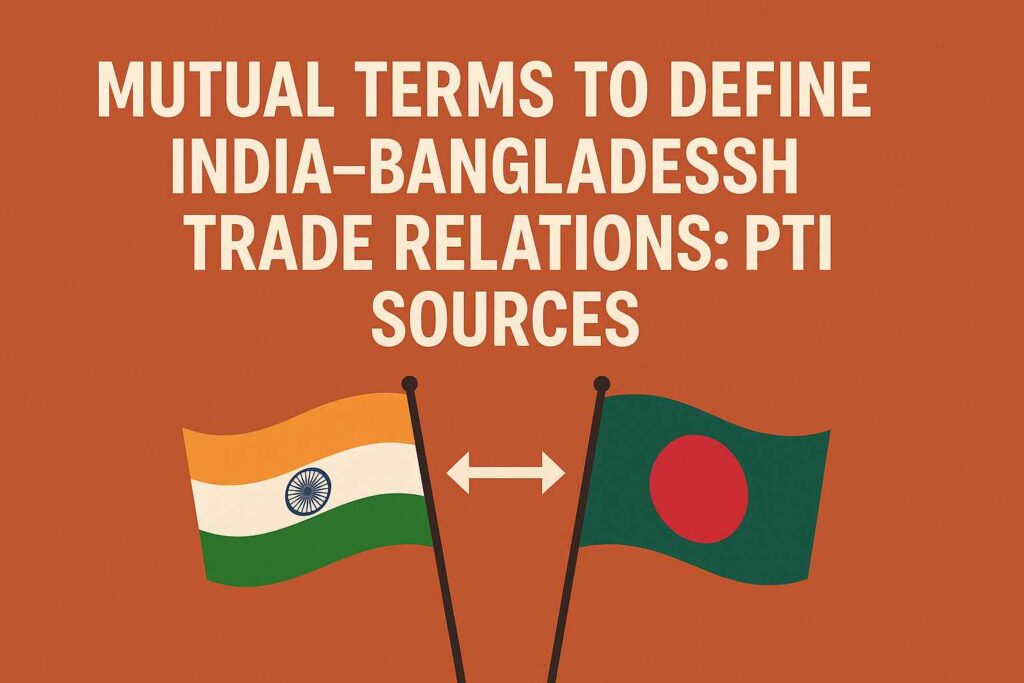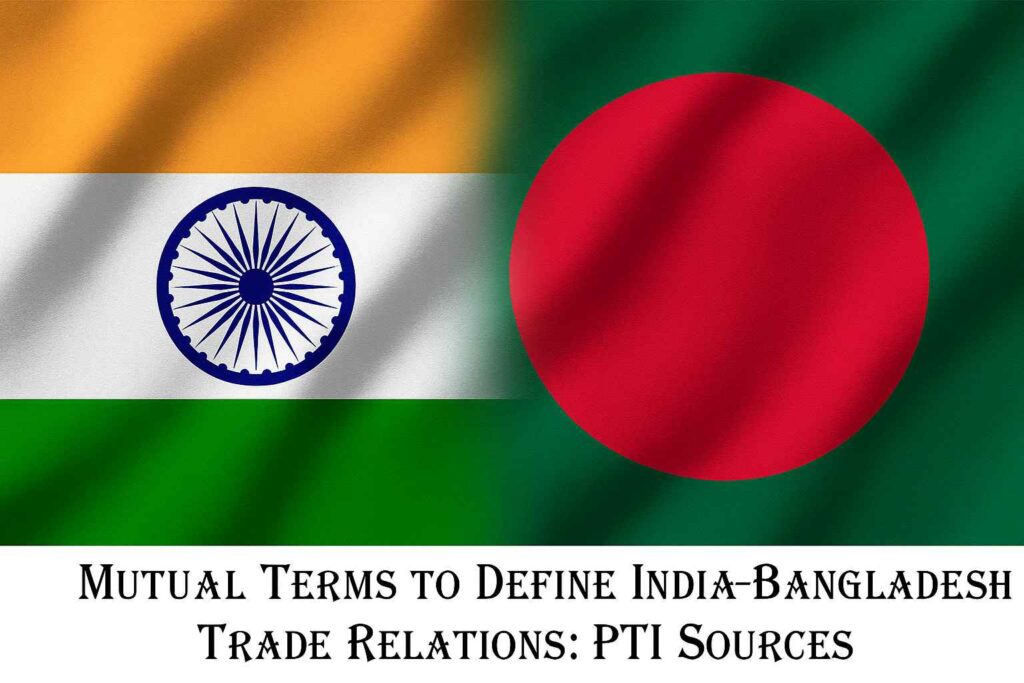India and Bangladesh have a long tradition of cultural, economic, and political relationships. Through the years, their relations have strengthened further with trade becoming a key factor influencing bilateral ties. Recently, credible sources interviewed by PTI indicated that India-Bangladesh trade relations will now be ruled by reciprocal or mutual terms. This significant change is set to inject balance and equity into the economic partnership between the two neighboring nations.
In this article, we look at the importance of this new trade strategy, its pros and cons, and its implications for businesses and consumers in both nations.
The Current State of India-Bangladesh Trade
India and Bangladesh have had progressively enhanced trade relations for the last 10 years. India is one of Bangladesh’s biggest trading partners, with imports and exports experiencing growing continuity. The bilateral trade between Bangladesh and India has surpassed $10 billion, indicating the growing dependence of their economies on each other.
India exports machinery, pharmaceuticals, electronics, textiles, and food items to Bangladesh in the majority. Bangladesh exports garments, textiles, leather goods, and agricultural produce to India. The trade has been reciprocal, but with changes in the economic scenario, both nations are interested in making sure that trade is fair and balanced.
What Does “Mutual Terms” Mean for India-Bangladesh Trade?
The term “mutual terms” is the concept that trade arrangements and transactions will be grounded on reciprocity—both parties providing equal opportunities and advantages. Rather than one nation having a superior advantage or setting one-sided terms, trade shall be ruled by equity and balance.
What this entails:
- Equal Market Access: Both nations will enjoy equal access to each other’s markets with fewer barriers to trade.
- Equitable Tariff Policies: Tariffs and levies on imports will be calibrated so that neither party is unfairly disadvantaged.
- Harmonized Regulations: Procedures, certifications, and standards will be streamlined to enable easier trade.
- Mutual Benefits: Trade agreements will be structured to derive equal benefits to businesses and consumers in both nations, with shared development.
Why the Shift to Mutual Terms Now?
Several factors have contributed to this renewed emphasis on reciprocal trade:
- Developing Economic Power: Bangladesh’s economy has expanded considerably with growing export potential and rising demand for varied products.
- Trade Deficits: India has at times suffered a trade deficit with Bangladesh, which has resulted in the demands for more balanced trade policies.
- International Trade Trends: With changing international supply chains and emerging economic blocs, both nations wish to establish a balanced position in regional trade.
- Political Will: Leadership across the two nations has pledged support to intensifying cooperation through balanced and equitable trade.
Potential Benefits of Mutual Terms in India-Bangladesh Trade
- Boost to Imports and Exports: Reciprocal terms can motivate more firms on both sides to consider cross-border trade, driving volumes and diversity.
- Employment Generation: Expansion of trade can result in development of manufacturing, logistics, and services industries, generating jobs.
- Consumer Gains: Consumers in both nations will gain from access to a greater variety of products at competitive prices.
- Enhanced Diplomatic Relations: Reciprocal trade generates trust and cooperation and can stabilize and deepen bilateral relationships.
- Regional Economic Integration: South Asian regional economic cooperation on equal terms between India and Bangladesh can be a starting point.

Challenges to Overcome
While the mutual terms approach is promising, some challenges remain:
- Non-Tariff Barriers: Delays at customs, paperwork, and regulatory obstacles can hinder trade even after tariff accords.
- Infrastructure Constraints: Infrastructure such as borders, ports, and roads requires improvement to support enhanced trade in an efficient manner.
- Ensuring Compliance: Standards and regulations need to be harmonized with continuous cooperation and surveillance.
- Political Sensitivities: Domestic industries on both sides can resist changes that are seen to be against their interest.
What Does This Mean for Businesses?
For companies in India and Bangladesh, the shift to mutual terms offers new opportunities and responsibilities:
- Discovering New Markets: Companies can venture into export and import opportunities without as much apprehension of unfair restrictions.
- Better Supply Chains: Streamlined regulations and lower tariffs can make supply chains more streamlined.
- Joint Ventures and Partnerships: Balanced trade provides a fertile environment for cross-border investments and collaborations.
- Requirement for Flexibility: Companies need to remain abreast of shifting trade policies and prepared to adapt to new regulations.
The Road Ahead for India-Bangladesh Trade
The declaration that India-Bangladesh commerce will be on terms of mutual understanding is an encouraging step toward an equal and prosperous partnership. The two governments are likely to enter into lengthy negotiations for settling the terms for finalizing agreements on these terms.
In the future, sustained conversation and understanding will be instrumental in resolving problems and making the mutual terms model deliver on its promise.
Conclusion
India-Bangladesh trade relations are at a critical juncture. The commitment to mutual and bilateral terms marks a new era of equity and cooperation. To traders, businesses, and consumers in both countries, this response promises more opportunities and advantages.
In their combined efforts to strengthen their economic connectivity, mutual respect and shared benefits would be the hallmark of a strong and lasting partnership.
Source: Economictimes



